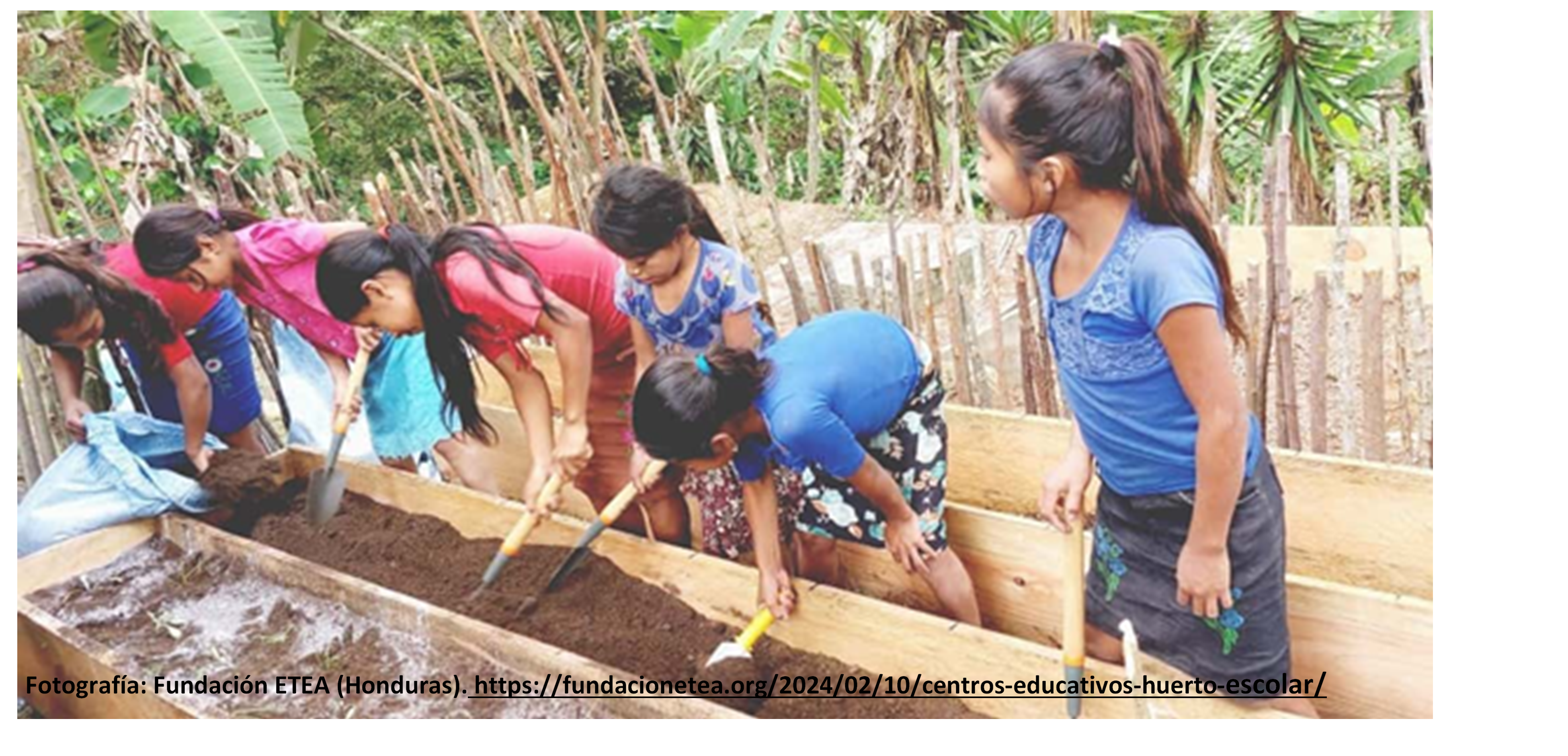Territories in socio-environmental crisis: opportunities and resistance from schools and rural communities in the Global South. Editorial.
DOI:
https://doi.org/10.5027/psicoperspectivas-Vol24-Issue3-fulltext-3607Keywords:
editorial, thematic section, socio-environmental crisis, Global SouthAbstract
The rural world of Latin America is undergoing significant transformations that are paving the way for renewed tensions, as well as for potentialities and possible futures. We find ourselves in a critical context marked by environmental crises and their influence on ways of living, in which the sociocultural transformations associated with these conflicts make it increasingly difficult to separate the environmental from the social. The notion of socio-environmental crisis is used to refer both to environmental alterations caused by human activities involving the extraction and exploitation of natural resources, and to the socio-political and cultural conflicts that emerge in each territory in relation to these processes. This thematic section, based on the notion of sustainability, which allows us to understand how schools and community organizations in rural contexts become spaces for exchange and opportunity, invites us to reflect on how territories in crisis can be strengthened by the discourses, strategies, and practices that communities and schools promote in relation to environmental sustainability. Researchers located in rural areas of Mexico, Peru, and Chile have responded to this call with a total of 10 articles. In addition, we include three articles on free topics that address, respectively, bipolar disorder, qualitative research with the deaf-signing community, and the situation of children included in the Chilean alternative care system.
References
Acosta, A. (2013). Extractivism and neoextractivism: Two sides of the same curse. In M. Lang & D. Mokrani, (Eds). Beyond development: alternative visions from Latin America (pp. 61-86). Luxemburg/Abya Yala Ediciones.
Amin, S. (2019). The long revolution of the global South: Towards a new anti-imperialism inter- national. Monthly Review Press.
Bengoa, J. (2003). 25 años de estudios rurales. Sociologias, 5(10), 36-98. https://doi.org/10.1590/S1517-45222003000200004
Cárcamo, H. (2016). Microcentros de escuelas rurales de la provincia de Ñuble, Chile: representaciones que posee el profesorado respecto de su impacto en el quehacer pedagógico en el escenario de la nueva ruralidad. Sinéctica, 47. https://www.scielo.org.mx/pdf/sine/n47/2007-7033-sine-47-00010.pdf
Chang, C. H. (2023). Climate change Education: Knowing, doing and being. (2nd ed.) Routledge.
Dunlap, A. (2020). Wind, coal, and copper: The politics of land grabbing, counterinsurgency, and the social engineering of extraction. Globalizations, 17(4), 661-682.
Fernández, R., Lauxmann, C., & Trevignani, M. (2014). Emergencia del Sur Global: perspectivas para el desarrollo de la periferia latinoamericana. Economia e Sociedade, 23(3), 611-643. https://doi.org/10.1590/S0104-06182014000300003
Figueroa, N. (2025, 16 enero). Tras las huellas de Julia Chuñil, defensora ambiental mapuche. Revista Anfibia. https://n9.cl/i89wx
Global Witness. (2017). Defenders of the earth: global killings of land and environmental defenders in 2016.
Gudynas, E. (2010). The new extractivism of the 21st century: ten urgent theses about extractivism in relation to current South American progressivism. Americas Program Report. Center for International Policy. https://postdevelopment.net/2010/02/19/new-extractivism-of-the-21st-century-10-urgent-theses
Intergovernmental Panel on Climate Change. (IPCC, 2023). Climate Change 2023: Synthesis Report. Contribution of Working Groups I, II and III to the Sixth Assessment Report of the Intergovernmental Panel on Climate Change. https://doi.org/10.59327/IPCC/AR6-9789291691647
Internal Displacement Monitoring Centre. (IDMC, 2022). Global Report on Internal Displacement 2022. https://www.internal-displacement.org/global-report/grid2022/
Kates, R. W., Clark, W. C., Corell, R., Hall, J. M., Jaeger, C. C., Lowe, I., McCarthy, J. J., Schellnhuber, H. J., Bolin, B., Dickson, N. M., Faucheux, S., Gallopin, G. C., Grübler, A., Huntley, B., Jäger, B., Jodha, N. S., Kasperson, R. E., Mabogunje, A., Matson, P., Mooney, H., Moore III, B., O'Riordan, T., & Svedin, U. Sustainability science. Science, 292, 641-642. https://doi.org/10.1126/science.1059386
Mardones, R. (2022). Influencia social minoritaria frente a la crisis socioambiental: Comunidades intencionales ecológicas en espacios rurales. Psicoperspectivas, 21(3). https://dx.doi.org/10.5027/psicoperspectivas-vol21-issue3-fulltext-2724
Medellín Milán, P., & Nieto-Caraveo, L. M. (2000). La producción de conocimiento sobre la sostenibilidad: tópicos emergentes. En La Educación Superior ante los desafíos de la sustentabilidad, Vol. 3 (pp. 77-88). ANUIES-SEMARNAP-Universidad de Guadalajara. https://ambiental.uaslp.mx/historico/docs/PMMyLMNC-AN-00-ANUIESSost.pdf
Mora, S. Y. (2016). Capitalismo, crisis y naturaleza. Un análisis del acaparamiento de tierras dentro y desde el Sur Global. Relaciones Internacionales, 33, 53-73. https://doi.org/10.15366/relacionesinternacionales2016.33.003
Ramírez-Miranda, C. (2014). Critical reflections on the New Rurality and the rural territorial development approaches in Latin America. Agronomía Colombiana, 32(1), 122-129. https://doi.org/10.15446/agron.colomb.v32n1.41218
Romero, J. (2012). Lo rural y la ruralidad en América Latina: categorías conceptuales en debate. Psicoperspectivas, 11(1), 8-31. https://doi.org/10.5027/psicoperspectivas-Vol11-Issue1-fulltext-176
Romero Toledo, H., Videla, A., & Gutiérrez, F. (2017). Explorando conflictos entre comunidades indígenas y la industria minera en Chile: las transformaciones socioambientales de la región de Tarapacá y el caso de Lagunillas. Estudios Atacameños, 55, 231-250. https://dx.doi.org/10.4067/S0718-10432017005000019
Smart, S. (2020). The political economy of Latin American conflicts over mining extractivism. The Extractive Industries and Society, 7(2), 767-779. https://doi.org/10.1016/j.exis.2020.02.004
Suša, O. (2019). Global dynamics of socio-environmental crisis: dangers on the way to a sustainable future. Civitas: Revista de Ciências Sociais, 19(2), 315-336. https://doi.org/10.15448/1984-7289.2019.2.31969
UNESCO (2007). El agua y los pueblos indígenas. https://unesdoc.unesco.org/ark:/48223/pf0000145353_spa
Uribe-Sierra, S. E., Panez-Pinto, A., Toscana-Aparicio, A., & Mansilla-Quiñones, P. (2023). Mining, development and unequal regionalization in subnational Latin American contexts. The Extractive Industries and Society, 13, 1-12. https://doi.org/10.1016/j.exis.2022.101209
Downloads
Published
How to Cite
Issue
Section
License
Copyright (c) 2025 Revista Psicoperspectivas

This work is licensed under a Creative Commons Attribution 4.0 International License.
All manuscript will be published under the Creative Commons 4.0 International License.

